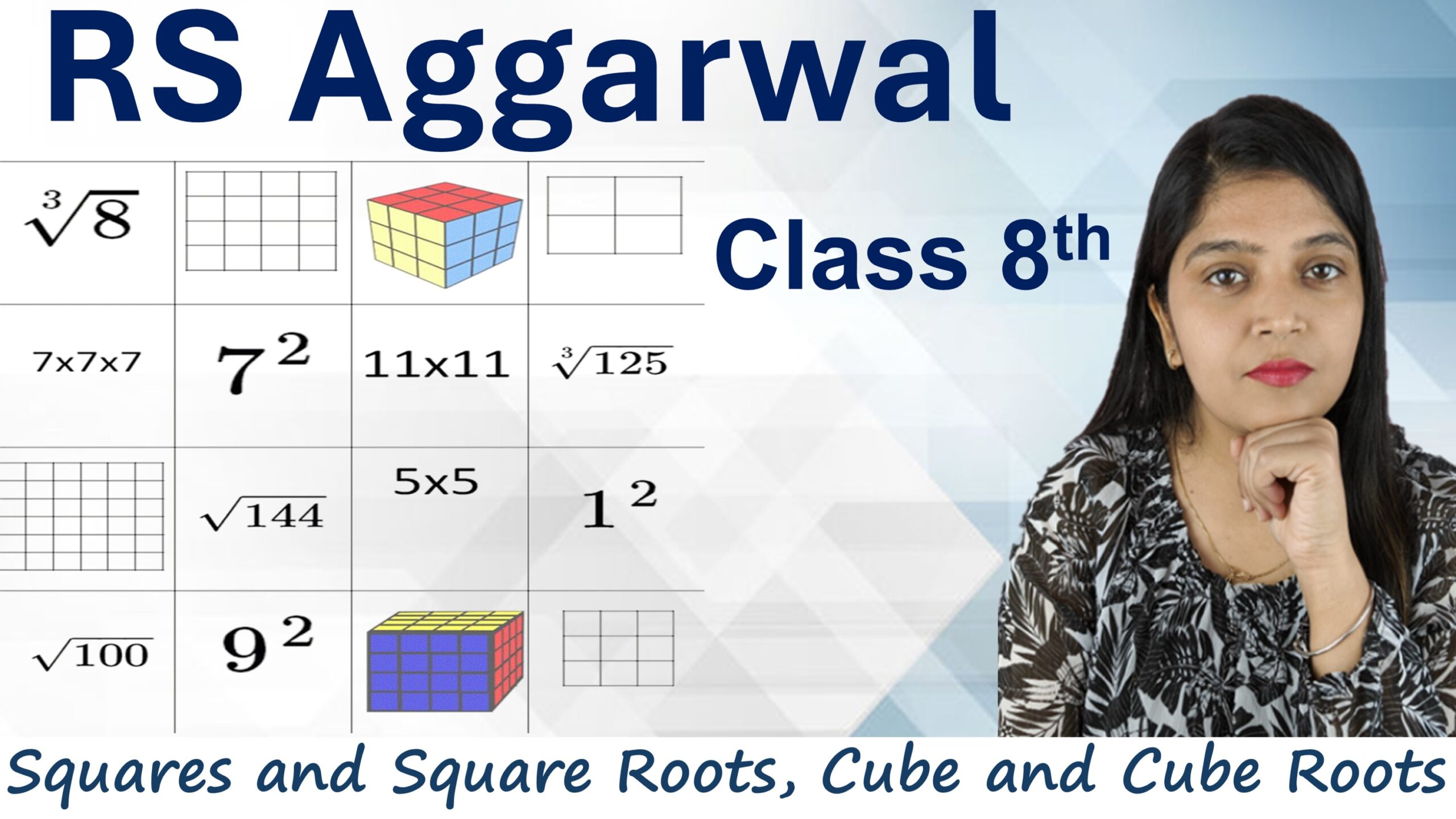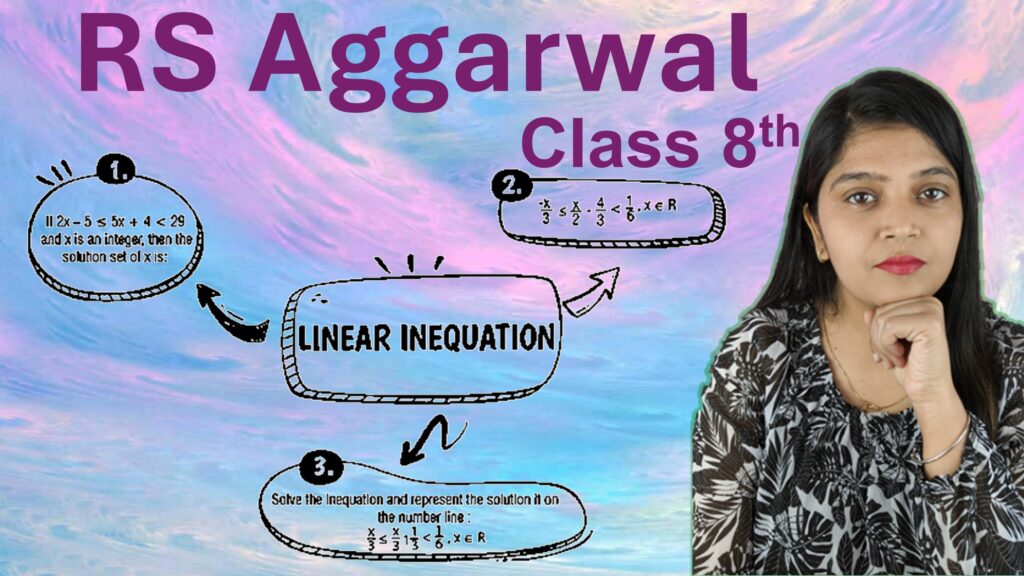Exercise: 3-C
Q1: Find the square root of each of the following numbers by division method:
i. √576
Step 1: Make digit pairs: (5)(76)
Step 2: First digit: √5 ≈ 2 → \(2^2 = 4\)
2
------
2 | 5 76
- 4
----
176
Step 3: Double 2 = 4 → Find digit _ so that (4_ × _) ≤ 176
Try: 44 × 4 = 176 → perfect!
24
------
2 | 5 76
- 4
----
176
- 176
------
0
Answer: √576 = 24
ii. √961
31
------
3 | 9 61
- 9
----
61
- 61
------
0
Answer: √961 = 31
iii. √1444
Digit pairs: (14)(44)
14 → √14 ≈ 3 → \(3^2 = 9\)
Try 3
3
------
3 | 14 44
- 9
----
544
Double 3 = 6 → Find digit _:
Try: 64 × 4 = 256
Try: 66 × 6 = 396
Try: 68 × 8 = 544 → Perfect!
38
------
3 | 14 44
- 9
----
68 | 544
- 544
------
0
Answer: √1444 = 38
iv. √4489
Digit pairs: (44)(89)
Try √44 = 6 → \(6^2 = 36\)
6
------
6 | 44 89
- 36
----
889
Double 6 = 12
Try: 123 × 3 = 369
Try: 124 × 4 = 496
125 × 5 = 625
126 × 6 = 756
127 × 7 = 889 → Perfect!
67
------
6 | 44 89
- 36
----
127 | 889
- 889
------
0
Answer: √4489 = 67
v. √6241
Digit pairs: (62)(41)
Try √62 ≈ 7 → \(7^2 = 49\)
7
------
7 | 62 41
- 49
----
576
Double 7 = 14
Try: 146 × 6 = 876
147 × 7 = 1029
148 × 8 = 1184
149 × 9 = 1341 → Perfect!
79
------
7 | 62 41
- 49
----
149 | 1341
-1341
------
0
Answer: √6241 = 79
vi. √5476
Digit pairs: (54)(76)
Try √54 ≈ 7 → \(7^2 = 49\)
7
------
7 | 54 76
- 49
----
576
Double 7 = 14
Try: 144 × 4 = 576 → Perfect!
74
------
7 | 54 76
-49
----
144| 576
-576
------
0
Answer: √5476 = 74
vii. √9025
Digit pairs: (90)(25)
Try √90 ≈ 9 → \(9^2 = 81\)
9
------
9 | 90 25
- 81
----
825
Double 9 = 18
Try: 185 × 5 = 925
186 × 6 = 1116
185 × 5 = best
95
------
9 | 90 25
- 81
----
185| 825
- 825
----------
0
Answer: √9025 = 95
viii. √7569
Digit pairs: (75)(69)
Try √75 ≈ 8 → \(8^2 = 64\)
8
------
8 | 75 69
- 64
----
1169
Double 8 = 16
Try: 163 × 3 = 489
164 × 4 = 656
165 × 5 = 825
166 × 6 = 996
167 × 7 = 1169 → Perfect!
87
------
8 | 75 69
- 64
----
167 | 1169
-1169
------
0
Answer: √7569 = 87
Q2: The area of a square field is 7744 sq. metres. Find its perimeter.
Step 1: Recall that the area of a square is given by the formula:
\[
\text{Area of square} = \text{side}^2
\]Step 2: We are given the area of the square as 7744 sq. metres.
So,
\[
\text{side}^2 = 7744
\]To find the side of the square, take the square root of 7744:
\[
\text{side} = \sqrt{7744}
\]Using the division method, we find:
\[
\text{side} = 88 \ \text{metres}
\]Step 3: Now, to find the perimeter of the square, use the formula:
\[
\text{Perimeter of square} = 4 \times \text{side}
\]Substitute the value of side:
\[
\text{Perimeter of square} = 4 \times 88 = 352 \ \text{metres}
\]Answer: The perimeter of the square field is 352 metres.
Q3: Find the least number which must be subtracted from 1104 to obtain a perfect square. Find this perfect square and its square root.
Step 1: Use the **long division method** to find the square root of 1104.
Step 2: Pair the digits of 1104 from right to left → (11)(04)
Step-by-step Division:
3 | 11 04
- 9 ← 3×3 = 9
------
2 04 ← bring down next pair (04)
63|204 ← double of 3 = 6 → try 6_ × _ ≤ 204
189 63×3 = 189
--------
15 ← remainder
Step 3: Since remainder = 15, we must subtract 15 from 1104 to make it a perfect square.
Step 4:
Perfect square = 1104 − 15 = 1089
Square root of 1089 = 33
Answer:
Least number to be subtracted = 15
Perfect square = 1089
Square root = 33
Q4: Find the least number which must be subtracted from 7956 to obtain a perfect square. Find this perfect square and its square root.
Step 1: Use the long division method to find the square root of 7956.
Step 2: Group the digits of 7956 from right to left → (79)(56)
Step-by-step Division:
8 | 79 56
- 64 ← 8 × 8 = 64
------
15 56 ← bring down next pair
16|1556 ← double of 8 = 16, try 16_ × _ ≤ 1556
1521 ← 169 × 9 = 1521
----------
35 ← remainder
Step 3: Remainder = 35
To make 7956 a perfect square, subtract the remainder:
7956 − 35 = 7921
Step 4: Now check square root of 7921:
√7921 = 89
Answer: The least number to be subtracted is 35. The perfect square is 7921, and its square root is 89.
Q5: Find the least number which must be added to 6203 to obtain a perfect square. Find the perfect square and its square root.
Step 1: Use the long division method to find the square root of 6203.
Step 2: Group the digits of 6203 from right to left → (62)(03)
Step-by-step Division:
7 | 62 03
- 49 ← 7 × 7 = 49
------
13 03 ← bring down next pair
14|1303 ← double of 7 = 14 → try 14_ × _ ≤ 1303
1184 ← 148 × 8 = 1184
----------
119 ← remainder
Step 3: Remainder = 119
We need to add a number that makes the remainder zero (i.e., next perfect square).
Step 4: Current closest square root = 78 ⇒ \(78^2 = 6084\)
Next perfect square = \(79^2 = 6241\)
So, we must add: \( 6241 – 6203 = 38 \)
Answer: The least number to be added is 38. The perfect square is 6241, and its square root is 79.
Q6: Find the least number which must be added to 7348 to obtain a perfect square. Find the perfect square and its square root.
Step 1: Use the long division method to find the square root of 7348.
Step 2: Group the digits of 7348 from right to left → (73)(48)
Step-by-step Division:
8 | 73 48
- 64 ← 8 × 8 = 64
------
9 48 ← bring down next pair
16| 948 ← double of 8 = 16 → try 16_ × _ ≤ 948
-825 ← 165 × 5 = 825 ✔️
----------
123 ← remainder
Step 3: Remainder = 123
Closest square root = 85 ⇒ \(85^2 = 7225\)
Next perfect square = \(86^2 = 7396\)
Step 4: To make 7348 a perfect square, we must add:
\(7396 – 7348 = 48\)
Answer: The least number to be added is 48. The perfect square is 7396, and its square root is 86.
Q7: Find the greatest number of six digits, which is a perfect square. Find the square root of this number.
Step 1: The greatest 6-digit number is 999999.
We will use the long division method to find its square root.
Step 2: Group the digits of 999999 from right to left → (99)(99)(99)
Step-by-step Division:
9 | 99 99 99
-81 ← 9 × 9 = 81
------
18 99 ← bring down next pair
189 | 1899 ← double of 9 = 18 → try 18_ × _ ≤ 1899
-1701 ← 189 × 9 = 1701
---------
198 99 ← bring down next pair
1989 | 19899 ← double of 99 = 198 → try 198_ × _ ≤ 19899
-17901 ← 1989 × 9 = 17901
----------
1998 ← remainder
After complete division, we find that:
remainder = 1998
Step 3: So \(999^2\) is less than 999999 by 1998
So least number to be subtracted is 1998
Answer: The greatest number of six digits which is a perfect square is 999999 – 1998 = 998001, and its square root is 999.
Q8: Find the least number of four digits which is a perfect square.
Step 1: The least 4-digit number is 1000.
We will use the long division method to find its square root.
Step 2: Group the digits of 1000 from right to left → (10)(00)
Step-by-step Division:
3 | 10 00
-9 ← 3 × 3 = 9
------
1 00 ← bring down next pair
61 | 100 ← double of 3 = 6 → try 6_ × _ ≤ 100
-61 ← 189 × 9 = 1701
-------
39 ← remainder
After complete division, we find that:
\(31^2 < 1000 < 32^2\)
Answer: The least number of four digits which is a perfect square is \(32^2 = 1024\).
Q9: Find the least number by which 69192 must be (i) decreased (ii) increased(iii) multiplied (iv) divided, to make it a perfect square.
Step 1: Use the long division method to find the square root of 69192.
Step 2: Group digits from right to left → (6)(91)(92)
Step-by-step Division:
2 | 6 91 92
- 4 ← 2 × 2 = 4
------
2 91 ← bring down next pair
46 | 291 ← 2 × 2 = 4 → try 4_ × _ ≤ 291
-276 ← 46 × 6 = 276
------
15 92 ← bring down next pair
923 | 1592 ← 2 × 46 = 92 → try 52_ × _ ≤ 1592
-1569 ← 523 × 3 = 1569
--------
23 ← Remainder
Step 3: Remainder = 23 ⇒ So 69192 is not a perfect square.
i. Least number to subtract (decrease):
Closest perfect square less than 69192 is:
⇒ \( \text{Current root} = 263 \Rightarrow 263^2 = 69169 \)
⇒ 69192 − 69169 = 23
ii. Least number to add (increase):
Next perfect square = \(264^2 = 69696\)
⇒ 69696 − 69192 = 504
iii. Least number to multiply:
Try making 69192 × n a perfect square. Let’s factorize 69192:
Step 4: Prime factorization of 69192:
69192 ÷ 2 = 34596
÷ 2 = 17298
÷ 2 = 8649
÷ 3 = 2883
÷ 3 = 961
÷ 31 = 31
÷ 31 = 1
So, 69192 = 2³ × 3² × 31²
For perfect square, powers must be even ⇒ 2³ is odd
⇒ Multiply by 2 to make it 2⁴
Least number to multiply = 2
New number = \( 69192 × 2 = 138384 \)
⇒ Square root = \( \sqrt{2⁴ × 3² × 31²} = 2² × 3 × 31 = 4 × 3 × 31 = 372 \)
iv. Least number to divide:
Again from the factorization above, only 2³ is odd
So divide by 2 once to make power of 2 even
⇒ Least number to divide = 2
New number = \( \frac{69192}{2} = 34596 \)
Factor of 34596 = 2² × 3² × 31²
⇒ All powers even ⇒ Perfect square
⇒ Square root = \( 2 × 3 × 31 = 186 \)
Answer:
i. The least number to be decreased is 23.
ii. The least number to be increased is 504.
iii. The least number to be multiplied is 2.
iv. The least number to be divided is 2.






Leave a Comment